Cystic fibrosis is a serious pulmonary condition that requires careful medical attention and treatment. Diagnosing cystic fibrosis early can help manage the condition and greatly improve a person’s quality of life and expectancy. Today, diagnostic tests can safely be performed in the US on children as young as one-month, which allows early detection of cystic fibrosis before symptoms even present themselves.
For people who were not screened at a young age, it’s especially important to know the signs and symptoms of cystic fibrosis. If you think that you or someone you know may be suffering from cystic fibrosis, here are some of the signs and symptoms to look out for, as well as some information on the condition.
What Is Cystic Fibrosis?
Cystic Fibrosis is an inherited, rare, and incurable disease that affects the cells that produce mucus, sweat and the digestive juices in a patient’s body, causing them to run thick and sticky instead of slippery and thin.
As a result, the secretions build up and block airways and other passageways, particularly in the lungs and the pancreas. Years ago, people who suffered from cystic fibrosis had a very short life expectancy. Today, people with the disease can live up to 30, 40, or 50 years old with proper treatment.
Signs And Symptoms Of Cystic Fibrosis
Detecting cystic fibrosis is extremely important in treating the disease, which may allow the person a better quality of life and a longer life expectancy. Recognizing the symptoms, though, can be tricky. Cystic fibrosis affects many areas of the body, therefore symptoms may seem unrelated.
For some people, the signs and symptoms of cystic fibrosis may not even present themselves until adolescence or adulthood, and in some, the symptoms may come and go, or worsen or improve over time. Because of these factors, it’s important to recognize some key red flags that may signal cystic fibrosis.
One key signal is a higher than normal amount of salt in a person’s sweat. Parents of children can usually tell just by kissing their children. Some atypical signs of cystic fibrosis may include recurrent pancreatitis and/or pneumonia, and infertility. Meanwhile, typical symptoms may involve the digestive system or the respiratory system.
Digestive Signs And Symptoms Of Cystic Fibrosis
The thick mucus caused by cystic fibrosis often blocks the tubes that carry digestive enzymes from the pancreas to the small intestine. This results in poor digestion and nutrient absorption and other issues, such as:
Poor weight gain and growth
Severe constipation, which may cause the rectum to protrude through the anus (rectal prolapse).
Intestinal blockage
Foul-smelling, greasy stool
Respiratory Signs And Symptoms Of Cystic Fibrosis
People with cystic fibrosis tend to suffer from blocked airways and respiratory passageways due to the accumulation of the thick mucus. This build-up makes breathing difficult and causes other issues, such as:
Inflamed nasal passageways and a stuffy nose
Recurrent lung infections
Breathlessness
Wheezing
Exercise intolerance
A persistent cough that may produce mucus
Cystic Fibrosis is a serious disease that should be well monitored and cared for. Despite its challenges, with proper and daily treatment, people who suffer from the signs and symptoms of cystic fibrosis are able to go to school, work, and generally live out a regular life. For more information on cystic fibrosis or to find out whether you or someone you know may be suffering from the pulmonary condition, contact us or book an appointment today.

